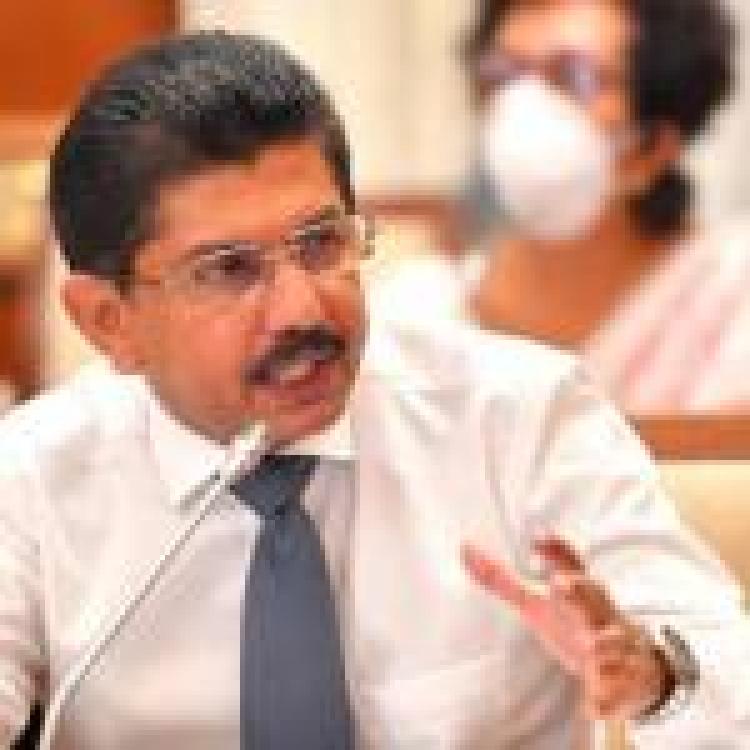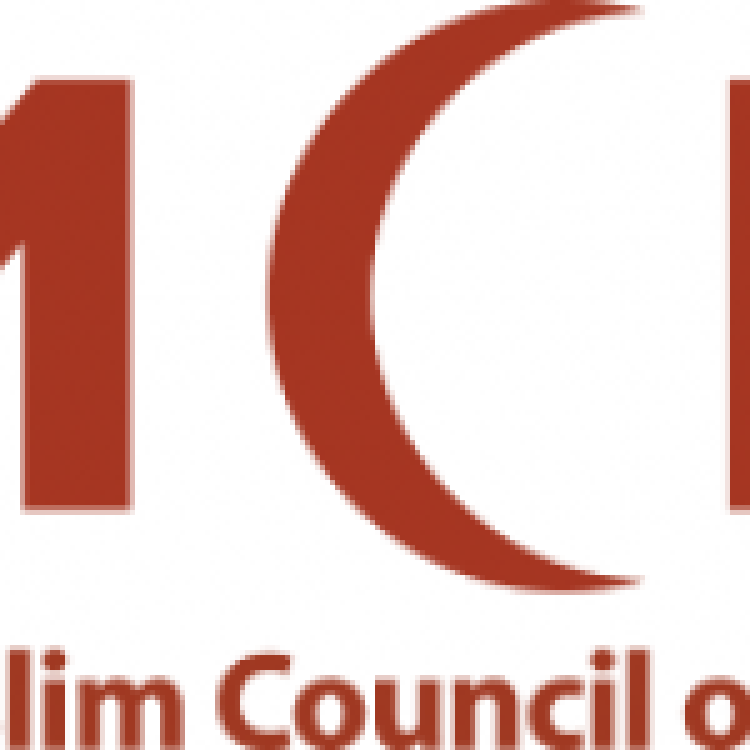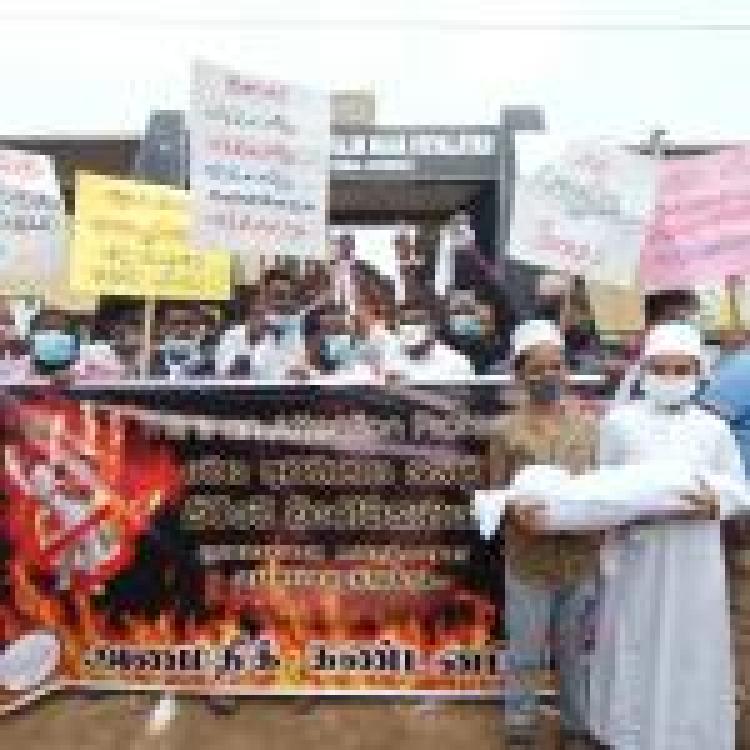
Demonstrators in Kilinochchi
Kilinochchi locals voiced their discontent concerning Sri Lanka’s policy of compulsory cremations, as campaigns against the moved continued across the North-East.
The state’s policy opposes Islamic practices and concerns raised by the UN as well as World Health Organisation (WHO) guidelines whic notes that cremations for COVID-19 related deaths are not compulsory.
Around 50 Muslims have been forcibly cremated by the state out of a recorded 1,224 deaths due to the coronavirus, with reports of Muslims who were denied burial rights desspite testing negative for COVID-19. The forced cremation of a 20-day-old baby against his parent’s wishes has caused outrage on the island; the parents have filed a Fundamental Rights petition demanding that the Sri Lankan health authorities produce and disclose all medical records in relation to the hospitalisation, as well as the death and disposal of the dead body of the baby.

Several protests have been carried out across the Tamil homeland as Tamils and Muslims came together to resist the Sri Lankan government’s policy of compulsory cremations for Muslim victims who have allegedly contracted COVID-19.

Reportedly, the Sri Lankan government have been in discussions with the Maldives government to have Muslim bodies buried in exile. Dunya Maumoon, the former Maldivian Foreign Minister condemned this, calling on Sri Lanka to “respect their Muslim minority’s wish to have last rites of COVID-19 patients”.

The Muslim Council of Britain recently called on Sri Lanka to end their draconian policy of forced cremations, stating that they will take “the necessary legal action to end this violation”.



